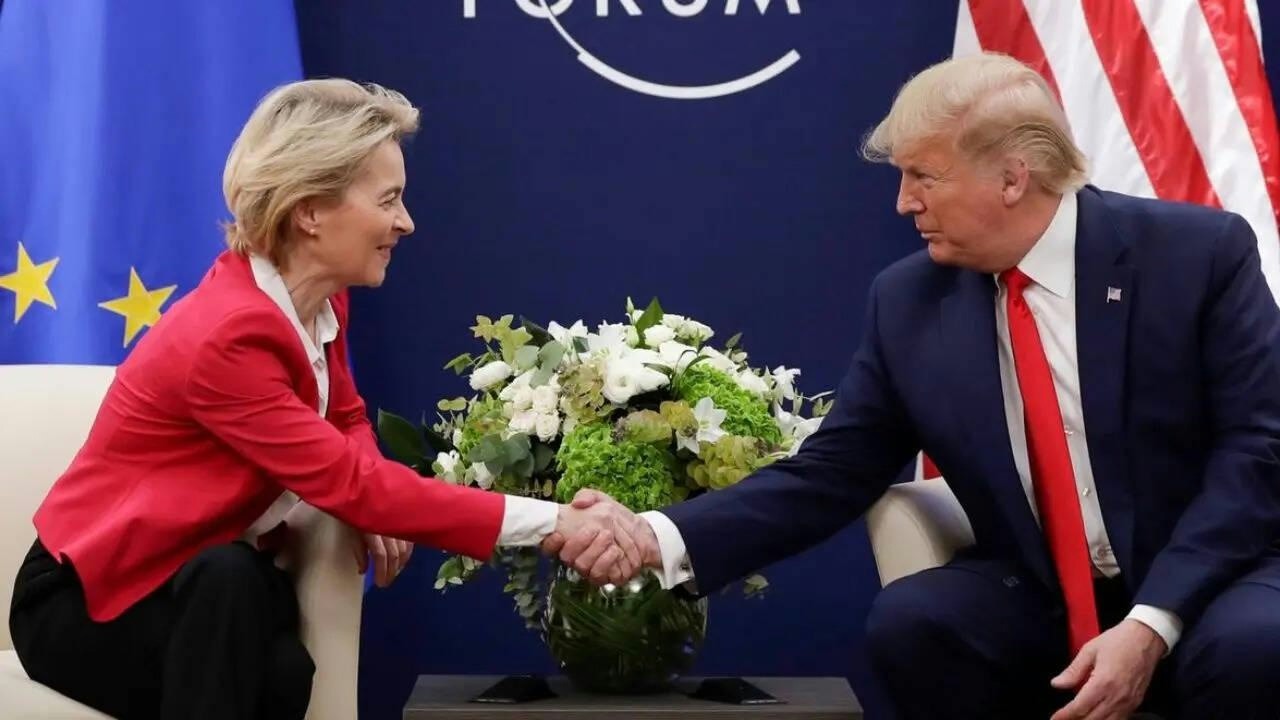AeroGenie — Your Intelligent Copilot.
Trending
Categories
Aviation Industry Avoids Tariffs in Trump-EU Trade Agreement

Aviation Industry Exempted from Tariffs in US-EU Trade Agreement
The aviation sector has emerged largely unscathed from the recent US-European Union trade agreement, avoiding the steep tariffs that had threatened to disrupt the industry for months. The agreement, announced in April, followed a period during which former President Donald Trump imposed a 20% tariff on all EU exports to the United States. After extensive negotiations, this tariff was reduced to a 15% baseline on European goods—a compromise seen as a victory for the US but a welcome relief for European exporters who had feared even harsher penalties.
Tariff Exemptions and Industry Impact
Significantly, aircraft and their components were excluded from the tariff regime, sparing the aviation industry from the most severe consequences of the trade dispute. This exemption is particularly important for manufacturers such as Airbus, which depend on a complex global supply chain that has already been strained by the COVID-19 pandemic. Industry leaders had warned that punitive tariffs could have disrupted production schedules and increased costs across the sector, making the exemption a critical development.
Market reactions to the agreement have been largely positive, with relief that the initially threatened 30% tariffs did not come into effect. Optimism was further bolstered by signals from US Transportation Secretary Sean Duffy at the recent Paris Air Show, where he expressed support for reinstating the zero-tariff framework that had governed US-EU aviation trade since 1979. This stance was welcomed by many key industry stakeholders.
Ongoing Concerns and Strategic Responses
Despite the immediate reprieve, European officials and industry groups remain cautious about the long-term implications of the deal. While the threat of tariffs has been averted for now, there is concern that the new 15% baseline could establish a precedent for future trade conflicts. Industry associations have warned that any escalation could still inflict significant damage, given the sector’s dependence on international trade and the broader geopolitical environment.
In response to the lingering uncertainty, airlines and manufacturers have begun adopting innovative strategies to mitigate potential costs. Delta Air Lines, for instance, arranged for an Airbus aircraft to be delivered to Japan rather than the United States, thereby avoiding US import tariffs as long as the plane operates exclusively on international routes. Similarly, Ryanair, Europe’s largest carrier by passenger volume, has explored registering new aircraft in the UK—which is not subject to aviation tariffs—or postponing deliveries to circumvent potential fees. CEO Michael O’Leary acknowledged that while Boeing typically absorbs such costs, the airline is prepared to collaborate with suppliers to find workable solutions.
As the aviation industry adjusts to the new trade environment, the sector’s response and the broader market dynamics remain uncertain. Given its reliance on global supply chains and international commerce, the industry will continue to be sensitive to economic and political developments on both sides of the Atlantic. Although the immediate crisis has been avoided, many companies remain vigilant as they monitor how the evolving trade landscape will shape their future operations.

Emirates Unveils Cabin Design for New Boeing 777X

Eighteen Years On, the Airbus A380 Remains Central to a $34 Billion Airline

How a boom in luxury airline seats is slowing down jet deliveries

Navitaire Outage Attributed to Planned Maintenance

DigiYatra Debuts Outside Aviation at India AI Impact Summit

Vietnam Orders Strengthen Boeing’s Commercial Outlook

Airbus Signals Uncertainty Over Future A400M Orders

JobsOhio Awards $2 Million Grant to Hartzell Propeller for Innovation Center

Collins Aerospace Tests Sidekick Autonomy Software on YFQ-42A for U.S. Air Force CCA Program

How the Airbus A350-1000 Compares to the Boeing 777
